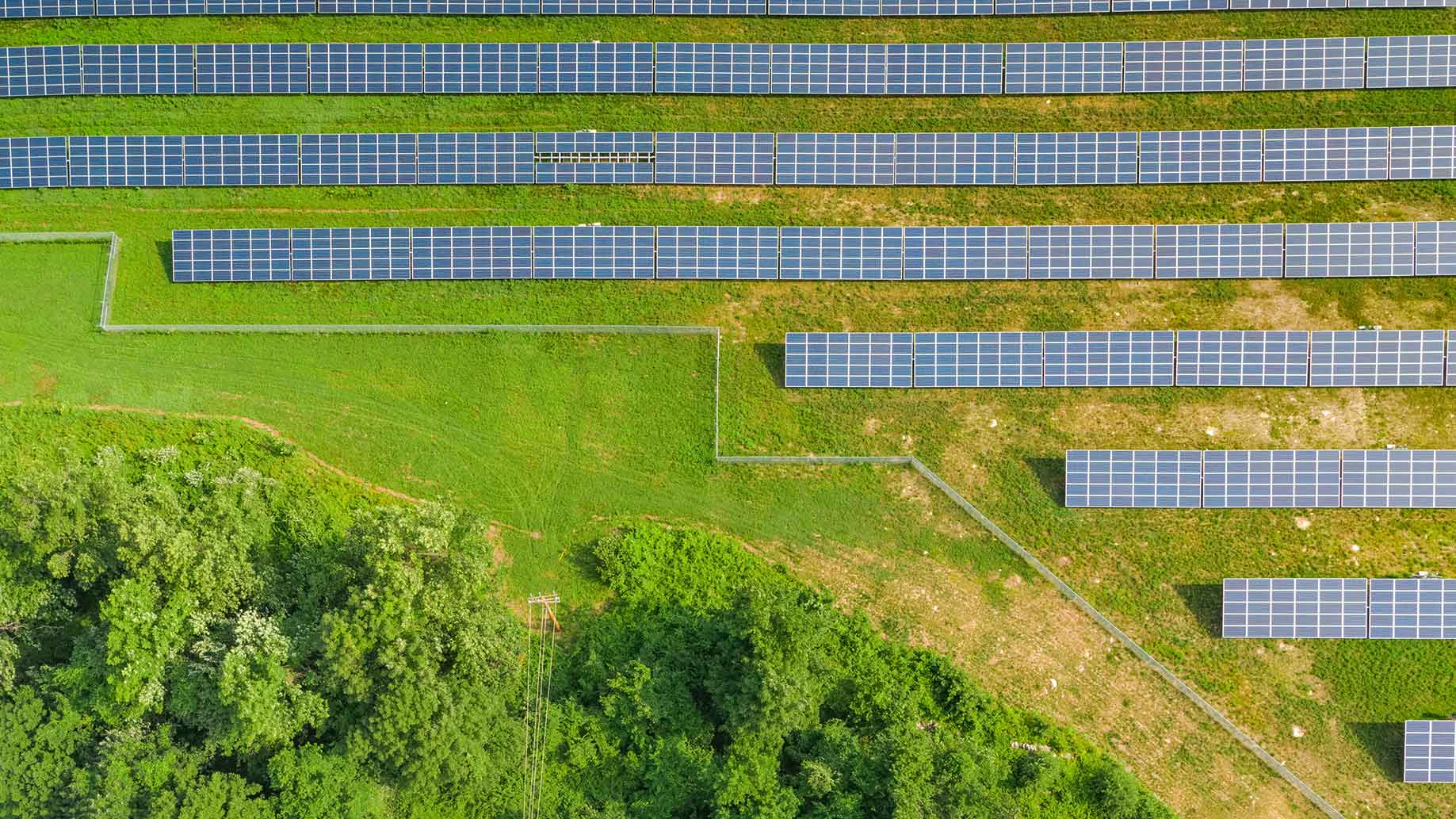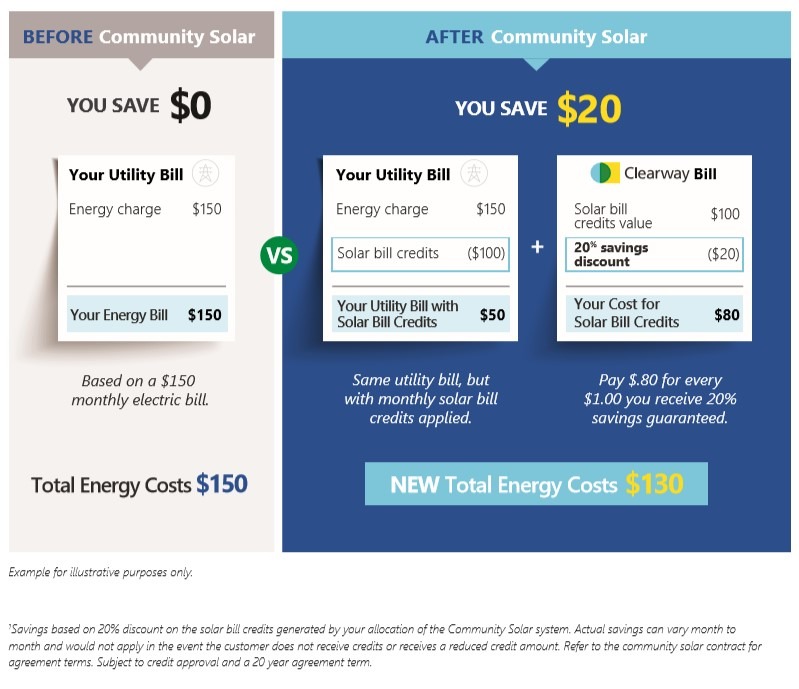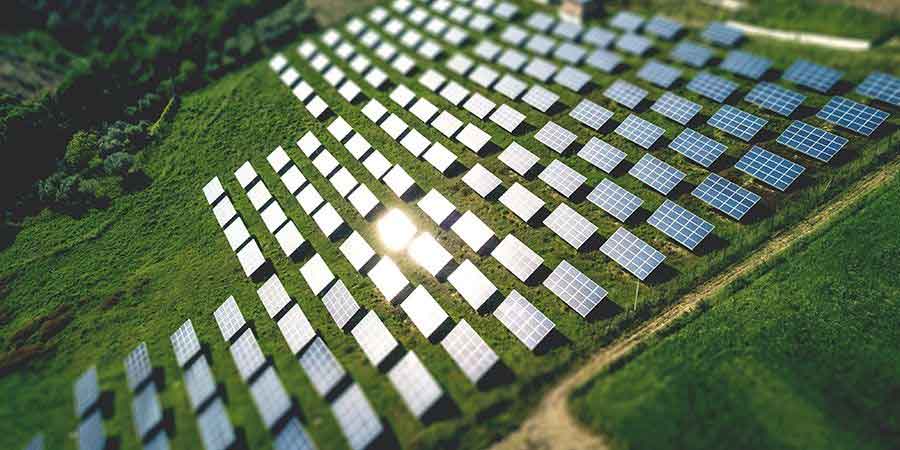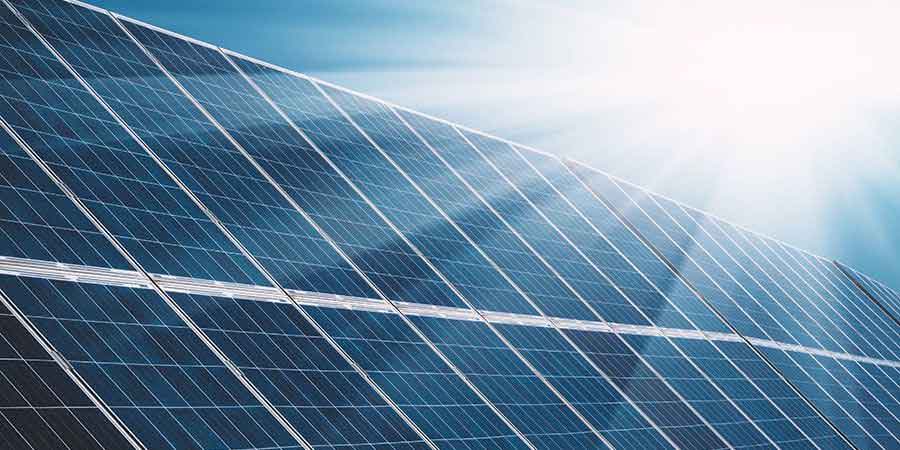Solar Energy for Chicago & Beyond
Renewable energy is becoming more widespread, but renewable resources such as solar energy are not always available or convenient for Chicago area residents. Fortunately, Chicago, Illinois now has a convenient solar energy option that is available to everyone, renters included, and the program is simple to join.
Interested in Solar?
Our Greater Chicago Community Solar Farms have a limited number of spaces. Secure yours today.
Learn MoreCommunity Solar in Greater Chicago, IL
The state of Illinois has its eye on 100% renewable energy generation. In fact the Illinois Clean Jobs Coalition is aiming to make the state the first to be powered entirely by renewables — not just clean energy. What’s the difference? Renewable energy is generated by sources that can be naturally replenished, while clean energy generates carbon neutral energy, however it relies on finite energy sources such as coal, natural gas and nuclear.
Last year, the Clean Energy Jobs Act was introduced, challenging the state of Illinois to be running on 100 percent renewable energy by the year 2050. This bill builds on the Future Energy Jobs Act of 2016, which is considered to be the most important climate legislation in Illinois history. Now in effect, the Future Energy Jobs Act was designed to create energy savings and accelerate the growth of renewable wind and solar energy, create thousands of jobs with wind and solar companies, and also provide millions of dollars in funding to wind and solar installation with low-income programs. The Clean Energy Jobs Acts (CEJA) aims to go even further. According to CEJA, their plan includes the following goals:
- Build over 40 million solar panels and 2,500 wind turbines across Illinois by 2030, which would generate more than $30 billion in new infrastructure.
- Ensure all people have access to solar power in their community.
- Expands goals for Energy Efficiency, on the electric and gas side, to lower costs.
- Directs utilities to evaluate lower-cost alternatives to infrastructure modernization.
The introduction of this recent legislation has opened the door for solar developers to create new projects throughout the state of Illinois, including Community Solar farms that make going solar easier than ever for Chicago area residents. Rooftop solar can present many challenges to residents living in an urban areas like Chicago and its surrounding suburbs because it requires the installation of solar panels on the roof of your home. With many shared buildings, tight spaces, and residents who are renting, installing a solar panel system on a rooftop is difficult and often expensive. Community Solar on the other hand, does not require a roof and is available to renters and homeowners alike.

What is Community Solar?
Community Solar is a program designed for residents to support solar energy generation and reduce their utility supply charges. It is available to everyone in the Greater Chicago area. In the past, choosing a solar power solution was only available to homeowners who could afford the upfront costs of rooftop solar or that met structural qualifications. Those who didn’t qualify, or did not want rooftop solar panels, were unable to invest in solar energy. However, Community Solar farms, like those built by Clearway Community Solar, makes supporting solar energy generation accessible to everyone through their local solar farm without the hassle or upfront costs of rooftop solar panels.
Community Solar arrays are built and maintained by Clearway Community Solar at an offsite location that receives plenty of sunlight. The solar farms also generate solar energy during the winter. Customers joining the program are subscribed to the appropriate allocation of the solar farm’s panels to help offset or lower their usage, based on their historical energy consumption. The power produced by the solar farm is delivered directly to the local power grid, rather than a customer’s home, and in return for the supporting the solar generation for their community, subscribers receive solar bill credits on their electric bill. Solar bill credits have the potential to offset your default utility supply charges, depending on home energy usage and the total amount of solar production. Community Solar farms help make renewable energy accessible for Greater Chicago residents, and others throughout the state of Illinois. You can learn more about Community Solar with our Community Solar 101 guide. Let the solar experts help you find the best solar option for you today.
Community Solar 101 GuidePricing
Chicago residents have the option to choose between ComEd and an Alternative Retail Electric Supplier (ARES). However, shopping for rates can become a confusing process when it comes to trying to understand the contract terms and any hidden fees or cancellation charges that may come along with selecting an ARES.
When shopping, Chicago customers should first be aware of current ComEd rates before deciding whether to choose an ARES or stick with their utility for power supply. ComEd updates their prices every six months. Their rates include both the supply charge and a small transmission service charge (the cost of delivering the electricity to the power lines). Customers never a markup on these charges because they are ineligible for profit.
The ComEd supply rate has most recently decreased in summer 2020 since the previous 6-month rate, offering Chicago customers a great deal on power supply.
June 1, 2023 – Sept. 30, 2023
6.809¢/kilowatt-hour (kWh)
October 1, 2022 – May 31, 2023
9.669¢/kilowatt-hour (kWh)
Historical ComEd rates have ranged from 5.073¢/kilowatt-hour (kWh) – 8.324¢/kilowatt-hour (kWh) from 2011 to date and averaged 7.034¢/kilowatt-hour (kWh).
Notably, the currently available ComEd rate listed above (6.473¢/kWh) is below the historical average rate (7.034¢/kWh) – which means ComEd’s current rate is a pretty good deal comparatively to the past rates.
Get a Solar Quote




